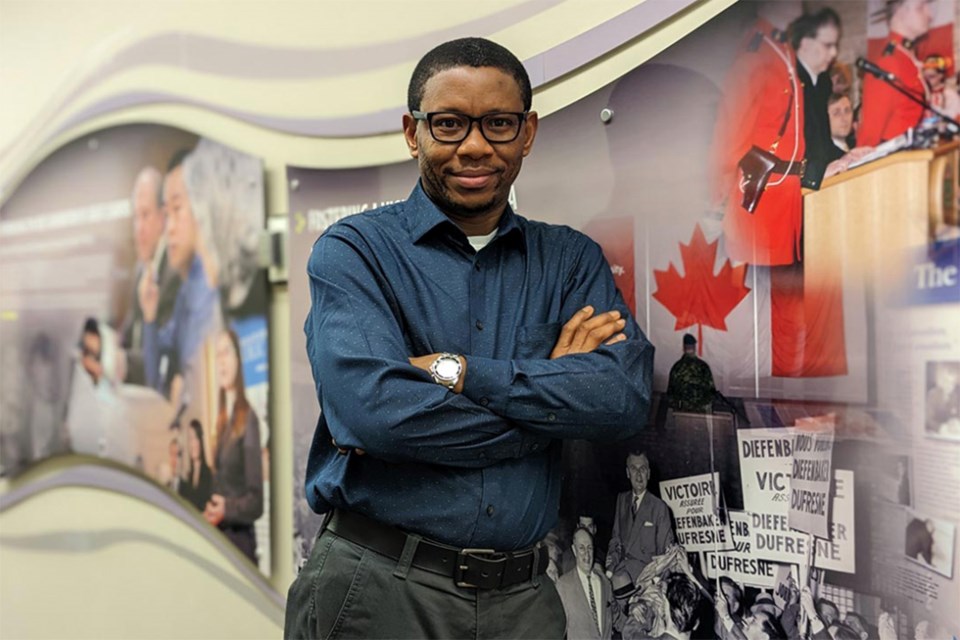SASKATOON — Dr. Albert Ugochukwu’s (PhD) journey into the field of agricultural economics was driven by a passion for sustainable development, nurtured by various mentors during his doctoral studies at the University of Saskatchewan (USask).
Today, as a Senior Policy Fellow at the Centre for the Study of Science and Innovation Policy (CSIP) in the , his research brings together genomics, digital architecture, and technology, with a key focus on enhancing our understanding of crop productivity and conservation – through an Indigenous lens.
An Erasmus Mundus scholar, Ugochukwu is exploring pathways to the challenges of “building responsible value chains, consumer trust, and technology adoption” in agri-food systems.
“Finding answers to food security, in a growing world population, requires resilient and sustainable transformation of food systems,” he said.
Through his research, Ugochukwu is also trying to address the in the multibillion-dollar food industry. “Authenticity continues to grapple the industry with food fraud and a decline in consumer trust over false-labelling, misleading quality claims, and substandard substitution,” he said.
Leveraging data in agriculture
Born and raised in Nigeria, Ugochukwu came to Canada in 2009 to complete his PhD in agricultural economics at USask and has participated in multiple international development projects during his 19 years of professional experience in the agri-food sector and with a number of international organizations and donor agencies.
At USask, Ugochukwu is embracing technology to tackle some growing concerns in the global agri-food sector.
“Data-driven tools will remain at the forefront of shaping the farm of the future,” he said.
While there has been a surge in the generation of data among researchers, the reuse and sharing of data in interdisciplinary plant phenotyping research remains less widely explored. Ugochukwu’s latest research examines the motivations, barriers, and opportunities for sharing of digital data in plant phenotyping research.
“It is important to make data openly available for reuse and identify motivations and policy frameworks that could serve as incentives for more wider data sharing among researchers,” he said.
At the same time, he is in the process of developing a natural capital accounting (NCA) framework for biodiversity conservation, using DNA barcoding within the Kunming-Montreal Global Biodiversity Framework adopted at COP15.
“We are working with the T'Souke First Nations for community-led valuations to inform policy decisions on biodiversity conservation,” he said.
Advancing AI-driven approach
Ugochukwu is optimistic about the transformative power of Artificial Intelligence (AI) in agriculture. He sees AI as a key player in “boosting efficiency, productivity, and profitability by digitizing agriculture.”
“Transitioning to regenerative agricultural techniques, including practices like cover cropping, nutrient management, and reduced tillage can help promote sustainable agriculture and communities,” he added.
Ugochukwu underscores weather forecasting and agricultural risk-assessing tools such as Microsoft’s FarmVibes.AI in assisting farmers to make informed decisions to avert potential losses to crops.
As he navigates the intersection of climate change and public policy, Ugochukwu reflects on some obstacles in conducting research.
“Securing grants directly from funding agencies can be challenging,” he said.
If given the opportunity of flipping a switch, he aims to expand his research scope and provide opportunities for more graduate students to enter research.
In his 13 years at USask, Ugochukwu has published more than 20 articles in peer-reviewed journals and received several scholarship awards, including the USask Interdisciplinary Research Excellence Award 2014 and Genome Canada Best Paper and Presentation Award. His research work aligns with , namely, agriculture, health, and wellness, and exploring sustainable communities, energy, and mineral resources.
— Submitted by USask Media Relations




